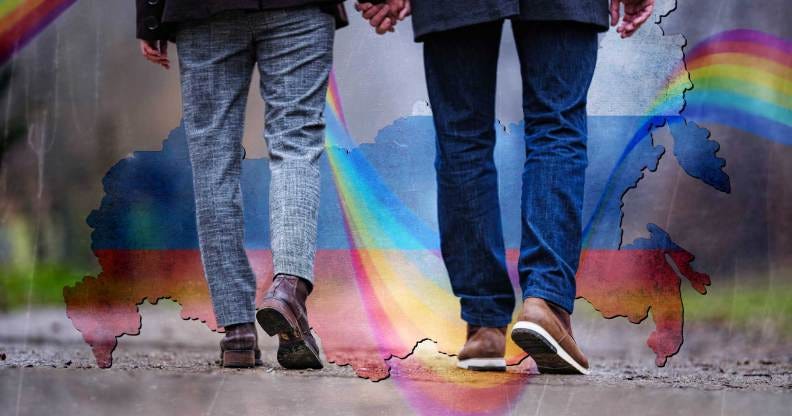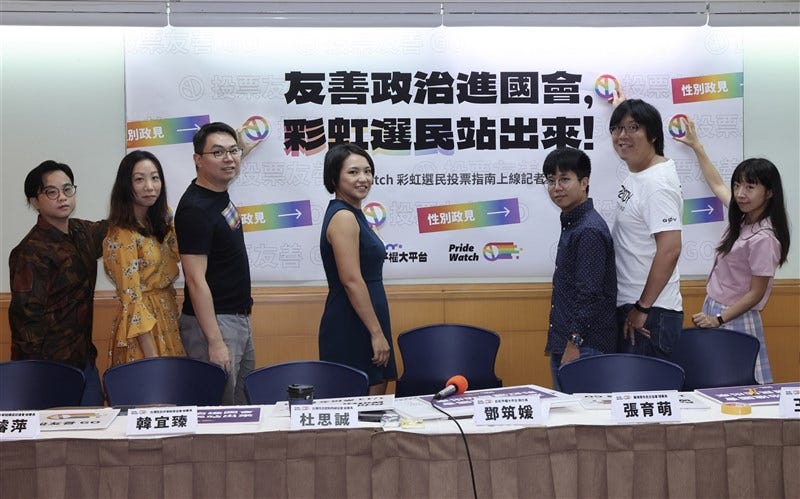Global Roundup: UAE Migrant Workers Abuse, Russia LGBTQ+ Community, Taiwan Pro-LGBTQ & Women's Rights Voting Guide, India Radio Station Empowering Women, First Ski Film To Feature Trans Women
Curated by FG Contributor Samiha Hossain
A photograph of new arrivals shown on Shamma Almahairi’s Instagram feed, tagged #maid #house_maid #myanmar #dubai #shamma_almaheiri Photograph: Instagram
The Guardian has spoken with six women from Kenya and Uganda who alleged that they were abused, denied proper food or medical care, beaten and detained at UAE Domestic worker recruitment agency Shamma Almahairi between 2020 and 2021, while the agency was licensed. Their names have been changed to protect their identities.
In 2021, Nia, 27, arrived in the UAE to be a domestic worker. Her aim was to make enough money to secure a better future for herself and her family. She believed a job was waiting for her when she landed but, instead, staff from the employment agency Shamma Almahairi Domestic Workers Services Center took her to its compound. Once there, she claims staff swiftly confiscated her phone and passport, before locking her in a cramped room with more than 12 other women. Nia says she languished there for three months, without a job or salary, until she could tolerate it no longer.
They told us the agency belongs to the government, and there was nothing we could do. I had to run. -Nia
Abuse within the UAE’s kafala system, which ties low-paid migrant workers’ legal status to their employers, has been well-documented. Domestic workers are particularly vulnerable to abuse within their employers’ home, and those who do leave without their employers’ permission face criminal charges. Less well known are the conditions within the recruitment centres where women are kept, sometimes for months, until an employer is found.
Other women recount horrific stories like being given one plate of food to share between eight people; being powerless in deciding which employer to work for and live with; not receiving any days off work; and being subject to beatings from the agency staff.
They beat you when you go back to the office from the sponsor. It’s normal for them to beat housemaids in front of other staff. They would beat ladies in front of us as a warning. -Mercy, 27, from Kenya
The UAE government revoked Shamma Almahairi’s licence to operate in September, due to unpaid fines and other bureaucratic offences. Yet, women are still apparently being held in its accommodation, claims Mercy. Four of the women interviewed are stranded in the UAE and unable to exit the country to return home without paying large fines or possibly serving jail terms because of their irregular visa status, they say. Advocates continue to call for abolishing the inhumane kafala system which predominantly affects women.
Getty Images
Max and Sasha are just two of the many LGBTQ+ people who have joined the mass exodus fleeing Russia to avoid violence, discrimination and war. Now, the queer Russian-Ukrainian couple are left with the scars of living under Vladimir Putin’s repressive regime.
Putin’s obsession with rejecting what he sees as Western “degradation” has led to Russia toughening anti-LGBTQ+ legislation in recent months. At the same time, the Kremlin has clamped down on free speech, human rights and dissent as the war in Ukraine drags on.
Max and Sasha fled Russia this time last year. They joined the hundreds of thousands of people trying to find safety in other countries bordering the huge nation. Several countries – including Latvia, Lithuania, Estonia, Poland and Finland – have put in place measures to restrict the entry of Russian citizens, limiting the chances for people to use them as safe havens.
Eventually, Max and Sasha made it into one of the Baltic states and began the process of applying for asylum. But they encountered difficulties with access to resources because of their differing citizenships, given the ongoing war. The queer couple’s asylum application was initially denied because the person reviewing it argued that it’s merely “hard” for gay people in Russia – refusing to recognise the very real abuse LGBTQ+ people face.
I think the scariest thing was, when we arrived, that people were delusional about Russia. They don’t know anything, what happens there and how it happens, which also affected our case…They don’t understand that, if you go to the police, you can be assaulted or even killed there, and no one will know. -Sasha
In July, Moscow approved a law that prohibits gender-affirming care for trans people, nullifies marriages where at least one partner has transitioned and makes it illegal for transgender people to adopt or foster children. This came hard on the heels of legislation expanding Russia’s “LGBTQ+ propaganda law”, which prevents any positive or neutral queer representation in public spaces and pop culture. For instance, a gay university student was expelled after posting videos of himself in makeup online. Sasha and Max still feel the impact of Russia's oppressive anti-LGBTQ+ laws.
You finally have the ability to think because you’re not in Russia any more. You don’t need to do anything, then it hits you. You understand that maybe you’re out of Russia, but you’re in Russia mentally. A lot of people understand that it’s probably post-traumatic stress disorder. -Anna-Maria Tesfaye, co-founder of Queer Svit
Members of the Taiwan Equality Campaign pose for a photo during a press conference in Taipei Friday. CNA photo Oct. 13, 2023
A group advocating LGBTQ and women's rights in Taiwan has posted on its website an interactive voting guide highlighting candidates in the country's January 2024 presidential and legislative elections who support the group's causes. The Taiwan Equality Campaign, which was launched in 2016 by five organizations promoting women's and LGBTQ rights, has compiled the guide, known as "Pride Watch."
So far, 13 legislative candidates from the ruling Democratic Progressive Party and the opposition Social Democratic Party, New Power Party and Taiwan People's Party have pledged to push for more inclusive policies if elected.
According to Joyce Teng, the campaign's executive director, the website will continue to update new LGBTQ-friendly candidates if more of them register with the platform and fill in the questionnaire to demonstrate their pledge. Teng said the constituents will also be fully informed of candidates' comments, either for or against LGBTQ and women's rights, as the group promotes more political awareness, action and participation among voters and people.
Once the Central Election Commission (CEC) releases the party lists for legislators-at-large on Jan. 2, 2024, the platform will also invite those candidates to fill out the questionnaires and pledge to support more LGBTQ- and women-friendly policies. As for the presidential candidates, the platform has invited all the major candidates to showcase their LGBTQ and women's policies, which will be compiled in the guide, Teng said.
Zubaida, a longtime listener of radio broadcasts, at home in Sakras, India. Radio remains the preferred medium for millions of Indians. Credit...Saumya Khandelwal for The New York Times
“Alfaz-e-Mewat,” or the voice of the Mewati people is a community radio station that offers a mix of group therapy, education, women’s empowerment and entertainment. Its listeners are the million or so people of Nuh, a rural, agrarian district in the foothills of the Aravali mountains in the northern Indian state of Haryana. The region has some of the country’s lowest female literacy rates, where early marriages are common and where violence against women is the norm.
Alfaz-e-Mewat has played a groundbreaking role in changing attitudes toward Covid vaccinations, women’s education and their empowerment. One woman, Bhagwan Devi, 51, was inspired by the radio station to start a campaign to build toilets inside houses in her village. Devi also sits on a committee that advises the station on content.
Radio made us realize that we could bring real change. That we also have equal rights as men. -Bhagwan Devi
The station broadcasts 13 hours of content daily in Hindi, Urdu and Mewati on 107.8 FM across 225 villages in this broader region formerly known as Mewat, which is home to the country’s ethnic Meo Muslims and a minority Hindu population. Daily programming is interspersed with folk songs, a “radio school” show for children and interviews from the field. Listeners can call in and request songs, or ask experts questions during live shows.
Kalsum, 33, who was married at age 16 and has five children, said her father-in-law encouraged her to listen to the radio station so she could get important tips about pregnancy and child care. Despite being illiterate, those tips, which she said she internalized, helped her get a job as a local health worker responsible for other pregnant women and babies in the area.
I never thought in my dreams that I would get a job. Radio gave me everything. -Kalsum
Advice for Girls, a feature-length ski film premiering at the end of this month, puts a spotlight on the collective experience of women in the ski industry. The film highlights skiers across generations – from women who hold first descents to young skiers ready to make their mark on the slopes. With an intersectional cast featuring an array of women – women of color, queer women, women with disabilities, and more – the crew hopes that everyone can find someone in the film to connect to. Advice for Girls is also proud to be the first feature-length ski film to feature transgender women.
It has been a few years since I decided to openly transition, and in doing so, I mentally prepared myself to lose any sense of community I had attained in the skiing realm. To the contrary, I was overjoyed to find that my trepidation was completely unwarranted! The level of support I received and continue to receive has been off the charts and for that I am elated!! -Cadence Sweetser
It was this support that pushed Sweetser to reach out to the Advice for Girls (AFG) film crew. She mentions how the rise of bills being made and passed into law demonstrate the need for uplifting queer people. Sweetser, along with the Advice For Girls athletes and film crew, hope that the film helps others feel more welcome in the ski and outdoor community.
Every queer skier and shredder deserves to feel the same level of support that I’ve felt from the A4G crew. My hope is that the inclusion of queer folks in Advice for Girls and future projects will give others my same sense of belonging in the outdoor community. -Cadence Sweetser
Inspired by producer Addy Jacobsend’s experience as a young woman in the ski industry, the film’s central message reminds women and girls that they are worthy of success, allowed to take up space, and valuable to their world.
Samiha Hossain (she/her) is an aspiring urban planner studying at Toronto Metropolitan University. Throughout the years, she has worked in nonprofits with survivors of sexual violence and youth. Samiha firmly believes in the power of connecting with people and listening to their stories to create solidarity and heal as a community. She loves learning about the diverse forms of feminist resistance around the world.





